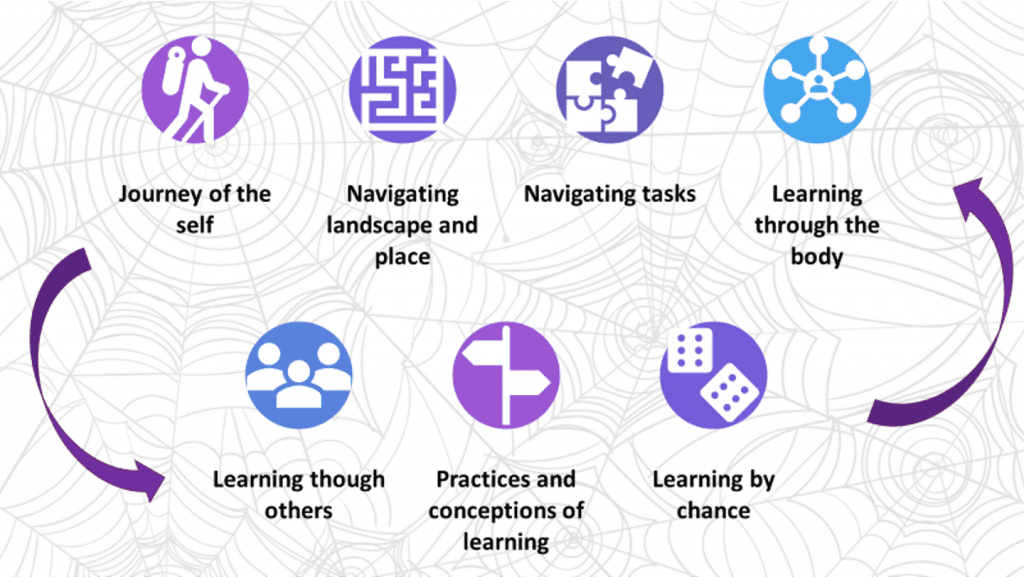How social workers learn in the workplace

We want to pause to consider what we are really talking about when we plan for supporting NQSWs to learn through the early career stage.
There are several things to reflect on: What do we mean by learning?; What do we value as individuals and organisations in terms of learning?;What is it really like to learn as a social worker and what does that actually involve?; How do we develop the best opportunities for social workers to learn through work?
There are many theories about how individuals learn, how organisations learn and how we facilitate learning. Social work as a profession strongly promotes reflective learning, self-awareness and reflexivity. We will be including some information about learning theories in the next stage of the website development. It is interesting to think about what we mean by learning, what we think social workers need to learn, and how they learn. In terms of workplace learning, there are rich and diverse opportunities for social workers to learn through the direct work that they do. Understanding more about the nature of how social workers learn in the workplace can help us think about how we maximise the potential and value of this aspect of professional learning.
If you can pause for a moment and think about one of the most important things you have learned as a social worker or as a professional in your career. Then make some notes.

Many different activities lead to learning. These include formal, informal and self-directed things that individuals, teams and organisations might do. Although guidance for continuing professional learning highlights the range of possibilities that count as learning, many social workers and managers focus on organised training sessions.
Our most significant learning experiences can be through so many different aspects of our work. We are drawing from some recent research in Scotland (Ferguson, 2021) that explored the lived experiences of social workers learning through work. The study highlights that learning in social workers’ workplaces can be incredibly potent in relation to the kind of work they are doing, yet it is not a primary focus in planning for continuing professional learning.
The research was concerned with going back to explore the nature of learning in the workplace, for social workers. The study was located at the intersection of different fields of knowledge about individual learning; organisational learning; social work professional learning; and workplace learning. The central research question, “What are the lived experiences of social workers’ learning in the workplace?”, was at the core of the study, drawing from and contributing to these different areas of existing knowledge and offering new insights into how these fields connect.
The study found that learning to be, and learning as, a social worker in, through and at work is an intricate web of sensory and emotional experiences while negotiating and navigating places, spaces and tasks. The lived experiences of social workers can be understood as involving the seven superordinate themes for the group, Journey of the self; Navigating tasks; Navigating landscape and place; Learning through the body; Learning through others; Practices and conceptions of learning; and, Learning by chance. Striking metaphors helped social workers convey their experience of learning in the workplace that encompassed these themes.

Learning as a complex web (Ferguson, 2021)
The themes of social workers’ learning in the workplace should not be considered merely on a surface or simplistic level. It is important to pause and consider what these different themes might mean for an individual social worker, then how these might combine. The threads of the relationship between these themes form a web that is unique to the individual social worker, deeply connected to their embodied experience of learning and the type of work opportunities that they undertake. Understanding the nature and complexity of individual social workers’ experiences can help us design more effective workplace continuing professional learning opportunities.
We will be linking to key ideas from this research and adding more information in the next stage of the website development.
You can find out more about the research and findings “When David Bowie created Ziggy Stardust” The Lived Experiences of Social Workers Learning Through Work (Ferguson, 2021).
Several important implications arise from Ferguson’s research for those involved in supporting social workers’ learning in the workplace.
Ferguson, G M. (2021). “When David Bowie created Ziggy Stardust” The Lived Experiences of Social Workers Learning Through Work. The Open University